ASX rallies 1.9pc to two-week high as Fortescue hits record
Shares rallied by 1.9pc for their best day in a month, led by record-breaking trade in Fortescue, while Woolies scrapped its purchase limits.
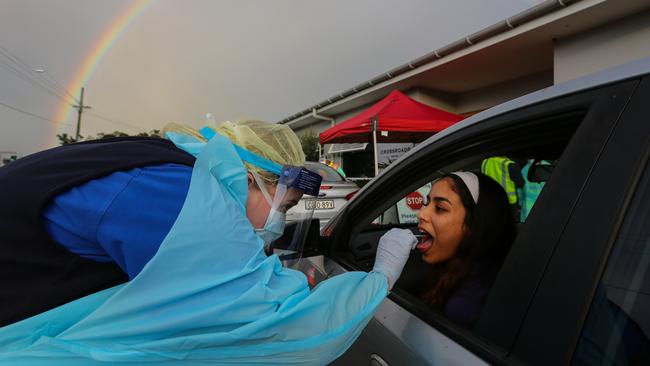
- Aussie dollar hits 5-week high
- Woodside posts quarterly output record
- Afterpay links with Apple Pay
- Woolies unveils queue-tracker app
That’s all from the Trading Day blog for Wednesday, July 15. Australian stocks rallied 1.9pc to a two-week high amid COVID-19 vaccine optimism, helping the Aussie dollar to spike to five-week highs too.
Locally, Woodside posted record quarterly output, while Woolworths scrapped its purchase limits and Westpac’s survey of consumer sentiment noted a reversal last month - even before the flare up in virus cases in Sydney.
US futures suggest further strength to come overnight.
8.37pm: Bridget Carter Seafolly bidders in the swim
The competition to buy Seafolly is understood to have been narrowed down to four parties after the voluntary administrator met with overwhelming interest for the iconic Australian swimwear brand.
It is understood that at least 80 groups had inquired about buying the brand, including private investors, private equity firms and family companies both in Australia and overseas.
The parties short-listed are believed to represent local and offshore groups, with some interested in buying the business through a Deed of Company Arrangement structure and others through a simple acquisition of the asset. It is understood final bids are due by next week, with management presentations held on Friday through a teleconference.
The plan is to secure an agreed deal by the second creditors meeting in August.
Voluntary administrator KordaMentha is said to be up-beat about the level of interest.

7.57pm: Lachlan Moffet Gray Morgan Stanley dire rental income forecast
Average retail rents at shopping centre properties owned by listed mall giants Scentre Group and Vicinity Centres will be clipped by 15 to 18 per cent compared to pre-COVID levels as stores close, consumers continue to shift to online shopping and the “new normal” of social distancing measures takes hold, according to analysis from Morgan Stanley.
The report suggests that rental income could decline by 15.5 to 17 per cent for Scentre properties and by 16.3 to 17.5 per cent for Vicinity properties, with six basis points of the decline represented by higher vacancy rates in the “specialty rents” category typically occupied by fashion retailers.
A further 1 per cent will be shaved off by department stores like Myer and David Jones and discount department stores like Target, Big W and Kmart reducing the amount of square footage they lease to improve margins.
“Even before COVID-19, Jones Lang LaSalle had forecasted that over the next five years, around 700,000 sqm of shopping mall space could become available as a result of department stores and discount department stores giving up space,” the report said.
“Our concern is that after COVID-19, retailers will evaluate their networks with even more scrutiny, potentially bringing forward store closure plans.
“If all department stores and discount department stores chains rationalise their footprints concurrently, there could be a flood of vacant retail space in Australia.”
The combined impact of higher specialty rent vacancies and an assumed 10 per cent decline in department store floor space could reduce Scentre’s annual rent per square metre from $1900 to $1759 and Vicinity’s from $890 to $821, the report said.
7.10pm: Joyce Moullakis CBA cuts ultra-wealthy customer unit
Commonwealth Bank has disbanded a unit within its private bank that looked after ultra-wealthy customers, causing job cuts in the latest of a string of changes in the division.
The Australian understands the move will impact as many as 20 staff with about 15 roles being cut, and several being redeployed to other areas. The job losses are said to include head of the private office unit Ralf Haase, whose LinkedIn profile says he started and managed the division for more than 11 years.
The bank’s website says Commonwealth Private Office was created to “extend the services” of the private bank to help ultra-high net worth individuals and their families “plan and achieve their goals and aspirations”.
7.01pm: James Kirby SMSF cost estimates ‘stale’,
The market regulator is set to dump highly controversial estimates that suggested self-managed super funds cost more than $13,000 a year to run and need 100 hours annually to manage.
ASIC chair James Shipton told a Senate committee on Wednesday the estimates were “stale” and the regulator was now actively reviewing the figures that have caused consternation across the SMSF industry.
The controversial claims first surfaced in an ASIC Fact Sheet last year designed to inform investors if SMSFs were suitable to their needs.
ASIC commissioner Danielle Press said the Fact Sheet was no longer being distributed by the regulator. The numbers, which are at least three times higher than many in the industry estimate, are still on display at ASIC’s Moneysmart website.
The move to review the figures comes after the ATO, which is the specific regulator for SMSFs, recently published statistics showing the operational expenses in SMSFs were at a median of $3923.
Aaron Dunn of Smarter SMSF has called the ASCI figures “grossly incorrect”.
6.44pm: Damon Kitney Beware ‘zombie’ companies with bonds
One of the nation’s top bond fund managers has warned of more troubles ahead for the volatile corporate bond market when government support ends in the coming months for so-called “zombie firms” that are unable to pay their debts.
Jamieson Coote Bonds, which is chaired by former Future Fund chief executive Mark Burgess and backed by Radek Sali’s Light Warrior investment group, invests only in high grade sovereign bonds and last year warned about the risks associated with the growing number of corporate debt offerings.
Those became apparent for retail investors following the collapse of Virgin Australia, which late last year issued $325m of high yield corporate bonds. The airline’s bondholders, including retail investors that participated in that issue, now face the prospect of heavy losses on their investment and are mounting a rival recapitalisation proposal for the airline.
6.17pm: David Swan Afterpay up on US partnership
Shares in Afterpay climbed again on Wednesday after the company announced it was taking a big step forward in the US buy now, pay later market by offering shoppers the choice to pay in-store using Apple Pay or Google Pay.
Afterpay said in a statement on Wednesday it would switch on the digital payments methods in select US physical retailers, with businesses in Australia, New Zealand and Britain to gain the functionality “in coming months”.
The exclusive partnership is the first type of arrangement between a buy now, pay later provider and the major tech giants’ digital payment platforms within the North American market.
The deal comes as the US begins to re-open its physical retail outlets in the wake of the coronavirus pandemic. Digital laybuy transactions had predominantly only been available via online shopping channels.
Shares rose after Afterpay announced the news, closing up 2.16 per cent at $67.99, near its high of $70.49.
5.23pm: Boeing culls order book again
Boeing culled another 183 jets from its order book in June and delivered just 10 aircraft, highlighting the pandemic-driven barriers to recovery for plane makers.
The aerospace giant on Tuesday reported another 60 cancellations for its grounded 737 MAX jet and removed 123 more aircraft, including 119 MAX jets, from its order backlog because of doubts those deals would be concluded.
The coronavirus-driven collapse in air travel has left airlines and leasing companies wary of placing fresh orders and unable or unwilling to accept existing deals because of available finance and travel restrictions on flight crews.
The Wall Streeet Journal
5.00pm: Banks fine, economy not so great
Two of the three big banks that reported results in the US on Tuesday still earned a lot of money in the second quarter. That is less reassuring than investors might hope.
Underlying the banks’ relative resilience in the second quarter were some arguably temporary benefits that don’t really address the long-term economic risks.
Reserve builds in anticipation of future credit losses remain a major swing factor for earnings at Citigroup, JPMorgan Chase, which turned profits, and Wells Fargo, which didn’t. But bankers stressed that their provisioning remains highly subjective and they lack much visibility into the true health of consumers, the biggest source of credit risk.
The reports did resolve some near-term questions for investors. Dividends for now appear safe at JPMorgan and Citigroup. Due to a tidal wave of investment-banking and trading fees, these banks are still adding to their core equity capital levels. Wells Fargo is a special case due to asset-growth limitations imposed on it by the Fed, and has already said it would be cutting its dividend.
But the quarter provided little that should give investors marginal comfort on the more complex questions that loom. That includes whether the additional loan-loss reserves set aside in the second quarter represent the peak, and what banks’ earning power will look like in a stagnant economy at zero interest rates.
The Wall Streeet Journal
4.32pm: Health leads, Woodside lags
A steady lift in CSL shares helped to push health stocks higher in Wednesday’s session, equalling tech as the best performing sector.
The heavyweight added 3 per cent by the close to $287.33, lapping up the market optimism of a potential coronavirus vaccine.
Elsewhere in the market, Afterpay rebounded by 2.4pc after weakness yesterday - which still didn’t help rivals Zip or Openpay which slipped by 6.7pc and 11.8pc respectively.
Woodside was dragged lower by 2.2pc, even after reporting record quarterly output.
Here’s the biggest movers at the close:
4.11pm: Shares lift to two-week high
A late afternoon burst of optimism sent shares to their best levels of the day at the close, up 112 points or 1.88 per cent to 6052.9.
Tech and health care were the best performing sectors - up 2.8pc each - as all sectors gained ground.
The major miners did a lot of the heavy lifting as iron ore futures gained overnight - BHP put on 2.5pc, Rio Tinto added 3.7pc and Fortescue put on 3.4pc to $16.03 - after setting new record highs of $16.10 intraday.
Eli Greenblat 3.31pm: Woolies removes Vic product limits
Woolworths will remove most of the product limits across Victoria from tomorrow except for toilet paper as demand moderates to more normal levels across the state following a recent spike in panic shopping caused by the fresh outbreak of the coronavirus in parts of Melbourne.
From July 16 in-store and online product limits will be lifted across 23 product categories in Victoria. These items include rice, pasta, flour, mince, sugar, eggs, dairy, bread, tissues, paper towels, and more.
However, toilet paper will remain with a purchase limit of two per customer and this continues to apply nationwide.
In late June, Woolworths and Coles were forced to extend new purchasing limits on toilet paper and paper towels from Victoria initially to across the entire country as some panic buying by shoppers quickly spread.
WOW last traded up 1pc to $38.78.
3.16pm: Buckle up for earnings season volatility
The lack of earnings guidance by most corporates has set the market up for a volatility come reporting season, warns Bell Asset Management, adding forward looking guidance was still too ambitious.
Chief investment officer Ned Bell expects a recovery “of sorts” in 2021, the year-on-year increased implied in current estimates is too optimistic given the COVID-19 crisis.
“The likely recalibration of 2021 earnings projections will most likely trigger a period of volatility in the second half of the year,” he says, adding that the market is pricing in a faster recovery than is likely.
“The COVID-19 crisis is not yet under control as case numbers remain elevated and have recently accelerated in various parts of the world – particularly in the US. Given the dependency on the state of the consumer, we currently feel that the eventual recovery will take longer than anticipated a few months ago.”
Mr Bell also notes the upcoming results season will be more instructive for investors after a period of uncertainty.
Eli Greenblat 2.59pm: ACCC allows supermarket co-ordination
The competition regulator will allow the nation’s supermarket operators – usually tough and brutal competitors – to be able to continue working together until March 2021 to ensure the continued supply of food and groceries during the COVID-19 pandemic.
Under the Australian Competition and Consumer Commission’s draft determination key players Coles, Woolworths, wholesaler Metcash and Aldi along with other grocery retailers approved by the regulator can continue to co-ordinate their actions in terms of key supplies as part of an approval first granted in March when the coronavirus pandemic first emerged.
“The ACCC recognises the significant challenges businesses and the economy more broadly are facing as a result of the COVID-19 pandemic,” ACCC Commissioner Stephen Ridgeway said.
“We know there has been unprecedented demand for groceries and other household products, and believe there are clear benefits in allowing this conduct to continue while the pandemic remains an issue.”
The draft determination proposes authorisation on broadly the same terms as the interim authorisations granted in March and June, which allow the supermarkets to co-ordinate with each other when working with manufacturers, suppliers, and transport and logistics providers.
Importantly, the authorisation does not extend to the prices of any retail products. Retailers, suppliers, manufacturers and transport groups can choose to opt in or out of any arrangements, the ACCC said.
1.47pm: China steel output to support iron ore
Ongoing strength in Chinese steel production will continue support higher iron ore prices, according to JP Morgan.
Analysts led by Lyndon Fagan upgrade their forecasts for the steel making metal by 4pc to 5pc over the forecast period, driving earnings upgrades of 9pc for heavyweights BHP and Rio Tinto and 12pc for Fortescue.
Mr Fagan says while Brazilian exports are showing initial signs of recovery, China steel output has been better than expected, up 4pc year-on-year in May.
He keeps BHP and Rio at overweight, saying both were attractive on a price-to-net-present-value basis of 0.88 and dividend yield of 4pc.
Fortescue, however, is rated at Neutral given its massive run recently, still tipping best in class operational performance.
BHP last up 1.9pc, Rio Tinto higher by 3pc and Fortescue gaining 2.2pc.
Read more: Fortescue shares up as iron ore exports soar
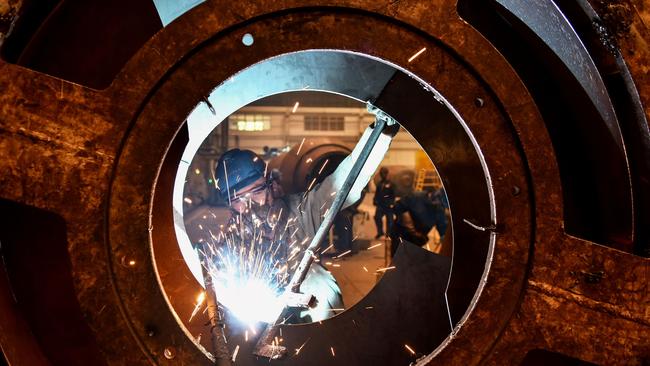
1.29pm: China condemns US Hong Kong bill
The Chinese embassy in the US has issued a statement opposing and condemning a bill signed by President Donald Trump overnight which sets out sanctions for Chinese officials over Beijing’s crackdown on Hong Kong.
The law requires sanctions targeting Chinese officials who crack down on the rights of Hong Kong residents to free speech and peaceful assembly, as well as the banks that do business with those officials.
In a statement, the Chinese Foreign Ministry said the passing of the law had “grossly interfered in China’s internal affairs and seriously violated international law and the basic norms governing international relations”.
With Dow Jones Newswires
Chinese Foreign Ministry: We strongly oppose and condemn the US side signing the so-called "#HongKong Autonomy Act" into law. This has grossly interfered in China's internal affairs, and seriously violated international law and the basic norms governing international relations. pic.twitter.com/4s3KEh1Tm9
— Chinese Embassy in US (@ChineseEmbinUS) July 15, 2020
Samantha Bailey 1.21pm: Zip sinks 9pc despite customer jump
Buy now, pay later group Zip has failed to impress investors with its latest quarterly report, even as it reported a surge in active customers to two million across Australia and New Zealand.
In an update this morning, the group said nearly 200,000 customers were added to the platform in Australia and New Zealand in the last quarter as customers continued to shun their credit cards, and as shoppers turned online for their retail therapy amid the coronavirus lockdown.
Shares in the group last traded down 9 per cent to $6.41, as the broader ASX added 1.1pc.
Read more: Zip unveils customer surge
12.49pm: Shares extend gain to 1.5pc
Australia’s S&P/ASX 200 rose 1.5pc to a 6-day high of 6027.4, tracing a “risk-on” move in S&P 500 futures and the Australian dollar.
But the index is up 1.2pc now after falling back to 6011. A gain of more than 1pc today would be the best in two weeks, but a close below the 6000 chart level would look bearish.
Growth and Defensive stocks in the IT and Healthcare sectors are back in the ascendancy after the Energy, Materials and Industrials sectors led gains initially.
But the recent market leader, Afterpay, looks to be forming a head & shoulders top pattern.
And the major banks are at or near 3-day lows after underperforming today.
Here’s the biggest movers at halftime:
Patrick Commins 12.25pm: ASIC scam complaints spike amid pandemic
Consumer complaints to the corporate watchdog have spiked by 20 per cent during the COVID-19 pandemic, ASIC chairman James Shipton has told a Parliamentary committee this morning.
Fake crypto currency term deposit products and fake investment schemes featured strongly among the complaints to ASIC, Mr Shipton said.
Head of assessment and intelligence Warren Day pointed to the “prevalence of scams during this time of people working from home and being remote from each other and looking for investment opportunities online”.
Mr Shipton said ASIC was also concerned about a “significantly bigger” uptick in retail investors involved in day trading and investing in complex financial products during the pandemic.
“We would implore retail investors to be very careful, considered and cautious, and don’t go in too headstrong.”
ASIC is “actively” considering which of its special regulatory reliefs implemented to assist businesses during the pandemic could eventually be made permanent, Mr Shipton said.
He said that the special rules allowing companies to hold virtual annual general meetings is an example of a regulatory relief which could outlive the health crisis.
11.59am: Aussie dollar hits 5-week high
Risk-on sentiment on global markets has sparked a surge in the Aussie dollar to the highest levels in more than a month.
At midday, AUDUSD is trading up 0.5pc to US70.08c – after hitting spiking to US70.13c, the highest since June 10.
The move is consistent with its close relationship with the S&P 500 which rose 1.3pc to a 5-week high close of 3197.5 overnight.
It also came after S&P 500 futures rose as much as 1pc in early Asian trading.
The US dollar index is lower by 0.14pc to 96.12.
Nick Evans 11.47am: China vs. Russia in Cardinal bidding war
Shares in Cardinal Resources jumped on Wednesday after Russia’s Nord Gold made a new bid for the Ghana-focused gold developer, putting upping the stakes in its bidding war with China’s Shandong Gold.
Nord Gold, which is UK headquartered but controlled by Russian billionaire Alexey Mordashov, pitched a 66c a share on-market offer for Cardinal on Wednesday, topping Shandong’s bid by 10 per cent. The offer values Cardinal at about $350m.
Cardinal shares were up 9.5c, or 16 per cent, to 68.5c on the news, suggesting the market expects Shandong to re-enter the fray for control of the gold developer.
Nord Gold’s offer is unconditional, but only for 170m Cardinal shares, enough to take its 18.7 per cent stake in the company to a controlling 51 per cent share. It had previously made a preliminary offer for Cardinal at 45.7c a share.
But the company revealed it had already won Foreign Investment Review Board approval for the bid, putting at a significant advantage to the Chinese gold major.
Cardinal’s board backed Shandong’s 60c a share cash bid in June, and today recommended shareholders take no action on the Nord Gold bid as it considered the new offer.
Cardinal’s major asset is the 5 million ounce Namdini gold deposit in Ghana.
Samantha Bailey 11.38am: Grim outlook for global house prices: Fitch
Australian house prices will fall for the rest of 2020 as the economy contracts and labour-market conditions deteriorate, Fitch Ratings analysts predict.
The ratings agency said nominal home prices will fall in the UK, Spain and Australia, while prices will be flat to slightly negative in the US and China. Prices are tipped to remain broadly flat in Germany for the remainder of the year.
“Under our baseline scenario, we forecast home prices to largely stabilise in the UK and Spain with a higher possibility of muted growth in Australia in 2021,” the analysts said.
“Any growth in the US, China and Germany will also be muted and prices could fall slightly in the US and Germany.”
Fitch said the pandemic was expected to have the smallest impact on house prices in China, due to a number of factors, including pent-up demand, lower mortgage rate
11.06am: Tech leads as Afterpay rebounds
The Technology sector is back in ascendancy after a three-day swoon.
The S&P/ASX 200 IT sector is up 2.6pc today – the strongest in the market – after falling 5.8pc in the past three days amid jitters in the BNPL sector, a sell-off in Technology One and a pullback in the US Tech sector.
Afterpay leads after rising as much as 5.9pc to $70.50, but it remains well below the record high of $76.72. The stock could form a minor Head & Shoulders top pattern if it ends the day below the “left shoulder” near $70 a share.
Interestingly, the growth stocks in the Tech sector are strong today alongside cyclical stocks in the Materials and Energy sectors.
10.49am: Sentiment reverses on second wave
Consumer confidence fell back last month, reversing the previous month’s rebound as the second wave of coronavirus cases emerged, according to the latest survey from Westpac.
Today’s consumer sentiment data shows a 6.1pc drop last month to 87.9, from 93.7 in June.
Westpac chief economist Bill Evans says the timing of the survey was paramount – highlighting the weakness in sentiment was before the significant Sydney cluster was identified.
“State readings underscore the importance of virus-related developments: Victoria’s sentiment index plunged 10.4pc in July but sentiment across the rest of the nation showed much milder declines (down 4.5pc on a combined basis),” he said.
“While milder, the weakness in other states is also likely to be linked to the outbreak in Victoria, reflecting concerns about the virus spreading interstate and spill-over effects on the wider economy.
“The component detail shows the renewed COVID threat hit consumer expectations for the year ahead hard but also significantly undermined medium-term expectations for the economy.”
Eli Greenblat 10.29am: Woolies unveils queue-tracker app
Woolworths is rolling out a powerful new online shopping tool to help combat spikes in customer traffic within its supermarkets and better manage queues.
For the first time ever, customers will be able to view real-time data of shopping activity in stores.
Woolworths first applied for a trade mark for its new technology called Q-Tracker in May, at the height of the first wave of COVID-19 that hit Australia and the initial restrictions on movement, and is now rolling out the application in parts of Melbourne.
It is one of the latest pieces of tech to be created and implemented by retailers as they struggle to maintain a smooth flow of customers through their stores while also keeping in line with social distancing guidelines without disappointing or frustrating shoppers.
Q-Tracker uses real-time data to show the length of the queue to enter its stores, with customers able to search their preferred store by postcode or suburb and then able to view the estimated queue wait time to enter the Woolworths stores closest to them.
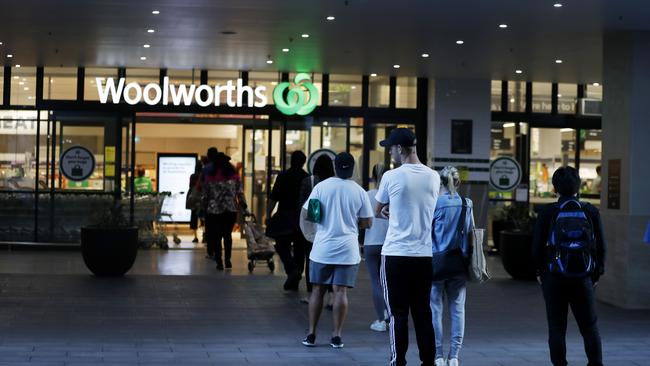
10.24am: Origin warns of $1.2bn writedowns
Energy producer Origin has warned of impairments between $1.16bn and $1.24bn at its full year results, due to weakness in commodity prices and the associated impact of COVID-19.
The group said today it had responded quickly to the oil price weakness by cutting capex and reducing operating costs, but still would field a significant hit for the 2020 financial year.
It also noted the “progressive transition to a lower carbon energy supply”.
Still, origin expects no change to FY20 earnings guidance between $1.4bn and $1.5bn.
10.11am: Shares jump by 1.2pc
Shares are firmly higher to start the session, more than making back yesterday’s losses with a 1.2pc jump to a five-day high.
At the open, the benchmark ASX200 is higher by 74 points or 1.2pc to 6014.9.
The bigger than expected rise came as S&P 500 futures jumped 1pc, adding to positive offshore leads.
Gains in materials and energy are leading the charge – as BHP adds 2.4pc, Rio jumps 3.2pc and Fortescue rises by 3.7pc.
Afterpay is making some of yesterday’s losses with a 3.7pc jump after inking a deal with Apple Pay, while major banks are split, NAB and Westpac lower while Commonwealth and ANZ eke minor gains.
Damon Kitney 10.01am: Most difficult period of my career: Waislitz
Billionaire investor Alex Waislitz has described the current market situation as “probably one of the most challenging, difficult and unpredictable periods of investment I have faced in my 30 year career”.
In a briefing for his Thorney Group’s two listed investment companies this morning, Mr Waislitz said the conflicting situations across the world created by the COVID-19 pandemic and the massive government stimulus measures it has generated ”make the unpredictability of the markets quite profound”.
The Waislitz-backed Thorney Opportunities Group (TOP) is currently trading at a 23 per cent discount to its net tangible assets at June 30, which Mr Waislitz described as “disappointing”, but he said ”value and turnaround stocks will come back in favour at some point in time and when they do we believe we will significantly outperform”.
”If they don't, we believe M&A activity will bring out some of that value,’’ he said, pointing to the current takeover offer from financial services group IRESS for a TOP portfolio company OneVue.
”Turnarounds often cost a bit more to achieve and they need to raise capital … But eventually they can, with the right management, achieve outstanding results as we have seen with companies like (TOP portfolio companies) ServiceStream and Money3.”
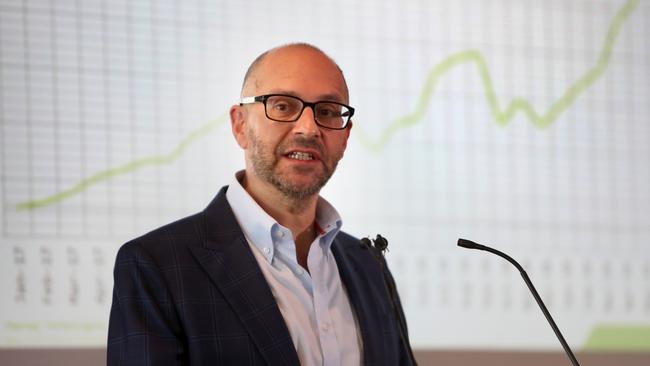
9.41am: ASX to retest 6000
Australia’s share market is set to rise after strong gains on Wall Street.
Overnight futures suggest the S&P/ASX 200 will open up 1pc at 6000 points.
The 6000 chart level is a key pivot point standing in the way of a retest of 6100 and 6200.
It comes after the S&P 200 saw its best day in over a week with a 1.3pc rise to a 5-week closing high of 3197.5 led by the Energy, Materials, Industrials, Health Care and Consumer Staples sectors.
The Nasdaq rose 0.9pc despite a bearish key reversal pattern off a record high on Monday, while the Dow Jones index surged 2.1pc to a 5-week high amid strong gains in UnitedHealth, Home Depot, Caterpillar, Apple and McDonald’s.
Confidence got a boost from a surprisingly-strong NHIB Small Business Optimism survey and reports of Moderna going ahead with a firm date for phase three trials set for July 27, while bank results were mixed.
Fed governor Brainard also helped by implying she’s willing to run the economy and supports yield curve control as a Fed policy tool. But Alabama, Florida and North Carolina reported record daily increases of coronavirus deaths on Tuesday.
India neared nearing 1 million cases and is now the country with the third-most number of infections in the world with 100,000 cases recorded in the past four days.
Focus turns to the Westpac Consumer Confidence survey for July at 10.30am
9.32am: Sentiment far from worryingly bullish: BofA
Global share market sentiment remains cautious, with fund managers still split on the shape of the economic recovery, according to BofA’s survey for July.
While cash levels rose to 4.9pc from 4.7pc “Wall Street’s $24tn rally is yet to elicit ‘greed’” according to chief investment strategist, Michael Hartnett.
His BofA Bull & Bear Indicator is at 2.9 points, which is “far away from worryingly bullish levels” above 8 points.
That’s positive from a contrarian point of view, but Mr Harnett recommends buying S&P 500 dips below 2950 and selling rallies above 3250.
Some 74pc of respondents said long US tech is the “most crowded trade” – the highest reading in the survey’s history – and 52pc said a COVID-19 second wave is the largest “tail risk”, with a vaccine is the catalyst needed to flip both.
Also, 72pc expected stronger global growth – the most since Jan 2014 – albeit conviction in the strength and duration of recovery is “low”, while just 14pc said recovery will be “V” shaped versus 44pc expecting a “U”, and 30pc seeing a “W”.
Similarly, 62pc of investors want corporates to improve balance sheets versus 27pc wanting higher capex, and just 9pc eager for higher dividends/buybacks.
“Asset allocators are stubbornly long health care, US, tech, cash, bonds, and short energy, UK, banks, industrials; but two notable shifts were an allocation to commodities at highest since July 2011 and a big jump in European equity exposure, with 42pc wanting even more,” Mr Hartnett said.
The survey also found 54pc participants said the Fed will not introduce yield curve control in September and 67pc said supply chain reshoring remains the most likely structural shift post-pandemic, with the US the region most likely to benefit.
Mr Hartnett’s “best short” is tech stocks given positioning and stretched performance, while his “best long” is energy, with oil prices acting well given whisper of higher OPEC supply, and long banks, with the survey showing a large drop in allocation to banks.
9.28am: What’s on the broker radar?
- IDP Education raised to Buy – Blue Ocean
- Monadelphous raised to Buy – Morningstar
- Orora cut to Hold – Jefferies
- SkyCity Entertainment raised to Outperform – Jarden
- TPG raised to Overweight – Morgan Stanley
9.13am: Soul Patts loses TPG sway in merger
Diversified investor Washington H. Soul Pattinson has had its TPG influence significantly downgraded after the telco’s mega merger with Vodafone.
The group today said it holds 12.6pc of the merged entity, a drop of 25.3pc in the former TPG, and has one director on the board of ten, from one of five previously.
As such, the group said its accounting process for the telco would be revised, derecognising the investment in TPG as an associate and consequently boosted its after-tax profit for the year to come.
It said it expected profit between $1.12bn and $1.17bn for the year to July 31, including the TPG special dividend, in-specie dividend for the TPG Singapore demerger and WSHP’s share of the profit from equity accounted before the merger.
8.58am: Afterpay links with Apple Pay
Afterpay has this morning announced its tie-up with Apple Pay, allowing customers to make purchases through Afterpay in physical retail stores and online.
Starting this month, retail stores in the US will begin offering Afterpay, and customers can use the service by activating the service through Apple’s wallet feature.
The functionality will be enabled in Australian stores in the months following.
“As we enter the second half of the year and retail re-emerges across the world, it’s critical we help our partners drive business growth, both online and offline,” co-founder Nick Molnar said.
“As a proven solution for driving incremental sales and new customer growth, we are thrilled to introduce our new omni-channel solution to US retailers as they begin to open their doors and bring shoppers back to their physical stores.”
The news comes as Afterpay launches its share purchase plan, set to raise $150m at $66.
APT last traded at $66.55.
Read more: Afterpay raising $800m as co-founders sell down
8.40am: Woodside posts quarterly output record
Woodside Petroleum notched a quarterly record for oil and gas production in the three months through June, but sales revenue dropped by 29 per cent as it felt the sting of lower energy prices.
Woodside said it produced 25.9 million barrels of oil equivalent in its fiscal second quarter, up 7 per cent on output in the previous three months. That brought first-half oil and gas production to 50.1 million barrels, up 28 per cent on a year ago.
Chief executive Peter Coleman said the production result was achieved despite first-half challenges including the impact of Tropical Cyclone Damien and the slump in commodity prices.
“The upshot of this sustained organisational effort has been our best-ever operating results, achieved in a time of extraordinary uncertainty and exemplifying the strength and resilience of our people and business,” he said.
Sales revenue fell to $US768 million in the second quarter, reflecting lower realised prices. Woodside said its oil output fetched an average of $US31/bbl in the second quarter versus $US52/bbl in the first three months of the year.
The price of liquefied natural gas produced by facilities including Pluto and the North West Shelf also dropped to $US5.00 per million BTU, from $US8.10 per million BTU in the first quarter.
A day earlier, Woodside forecast an impairment charge of $US3.92 billion against the value of its oil and gas assets, as it grapples with a more subdued outlook to energy prices and the coronavirus pandemic.
Dow Jones Newswires
8.30am: Virus jump could hurt oil recovery: OPEC
Even a record-breaking rise in oil demand next year won’t be enough to spur a recovery back to pre-coronavirus levels, according to the Organisation of the Petroleum Exporting Countries.
In its widely read monthly report, the cartel said it expected that the world’s demand for oil would increase by 7 million barrels a day next year, after a forecast 8.9 million-barrel-a-day decline in 2020.
While annual demand for gasoline, diesel and other refined products was seen rising by a record amount, “efficiency gains, including teleworking and teleconferencing, may cap oil demand gains in 2021 to remain below pre-crisis levels of 2019,” OPEC said.
Its remarks reflect growing investor concern about the impact of another wave of COVID-19 infections hitting the U.S., among other countries. That jump in cases could jeopardise the recovery in oil markets and the global economy, OPEC said.
Dow Jones
7.52am: COVID-19 vaccine enters final stage trial
The US biotech firm Moderna said it would enter the final stage of its human trials for its COVID-19 vaccine on July 27, becoming the first company to do so.
The trial will recruit 30,000 participants in the US, with half to receive the vaccine at 100 microgram dose levels, and the other half to receive a placebo.
AFP
7.45am: Trump signs HK sanctions bill
President Trump signed into law a bipartisan bill that requires sanctions on Chinese officials who crack down on the rights of Hong Kong residents to free speech and peaceful assembly, as well as the banks that do business with those officials.
The bill sailed through both houses of Congress by unanimous consent as China moved to impose a new national security law giving Beijing more control over Hong Kong following massive anti-government protests there.
The US, UK and other Western countries have criticised the move for violating the high degree of autonomy promised to Hong Kong when Britain returned its former colony to Chinese rule in 1997.
The bill would impose sanctions on people or entities that the administration identifies as materially contributing to the erosion of Hong Kong’s autonomy. Examples include a police unit cracking down on protesters or Chinese Communist Party officials who enforce the national-security law. Banks found knowingly doing business with black-listed officials and agencies could also be sanctioned.
Dow Jones
6.20am: ASX set to open higher
The ASX is set to open modestly higher after US stocks returned to rally mode, shrugging off mixed results from large banks and gaining ground on hopes for more stimulus spending from Washington.
Shortly after 6am (AEST) the SPI futures index was up 27 points, or 0.5 per cent.
On Tuesday, a drop in tech stocks sent the ASX down 0.6pc by the close.
The Australian dollar was this morning at US69.74, up from US69.48c at 4pm yesterday.
Spot iron ore was up 0.5 per cent at $US112.40.
6.10am: Wall St higher after banks report
US stocks turned higher, accelerating toward the end of the session, as investors parsed earnings results from the biggest banks for insights on the health of the American economy and its lenders.
The S&P 500 rose 1.3 per cent after wavering earlier in the session. The Dow Jones Industrial Average rose 2.1 per cent. The Nasdaq Composite advanced 0. per cent.
Comments made by Federal Reserve members implying further support for the economy and pointing to the possibility of a decline in the unemployment rate also helped lift the market.
Also, reports said leading Republicans in the White House and on Capitol Hill were revising their stance on stimulus measures, including their prior opposition to extending supplemental unemployment benefits.
“The promise of fiscal stimulus is boosting peoples’ economic expectations,” said Chris Low, chief economist at FHN Financial.
A rally in the equity market on Monday had fizzled after California rolled back some of its reopening plans, stoking fears about additional lockdowns. Investors recently have been weighing worries about an uptick in coronavirus infections versus signs that the economy is slowing recovering from the downturn.
Earnings season kicked off in earnest this week with the latest quarterly results from big banks. JPMorgan and Citigroup’s earnings beat analysts’ estimates, but the firms’ results highlighted the extraordinary economic uncertainty ahead and a worrisome outlook on the health of their corporate and consumer clients. Both set aside billions of dollars for rising loan losses as they girded for defaults.
Overall, investors are expecting corporate earnings among companies in the S&P 500 to fall 45 per cent in the second quarter from the year earlier, according to FactSet. Financial companies within the S&P 500 are expected to take an even bigger hit — a roughly 57 per cent drop from the prior year.
Shares of JPMorgan rose 0.5 per cent in recent trading, lifting the Dow, while Citigroup’s slipped about 3.6 per cent.
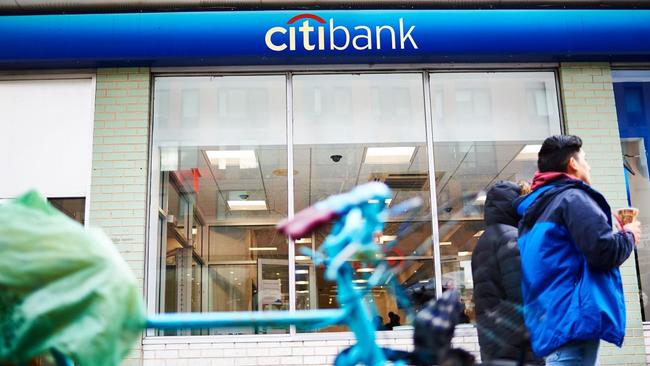
Later this week, investors will be parsing results from Morgan Stanley, Bank of America and Goldman Sachs.
Equity values added to gains after Fed Governor Lael Brainard said the US central bank should use large-scale asset purchases for a “sustained” period to help the economy rebound amid a “thick fog of uncertainty” brought on by COVID-19.
Later Tuesday, St. Louis Fed president James Bullard struck an upbeat tone on the outlook, saying that the unemployment rate could drop sharply in the next six months, if “we play our cards right” and many workers subject to temporary lay-offs are recalled.
In Europe, the pan-continental Stoxx Europe 600 fell 0.8 per cent. Industrial production in the eurozone is recovering more slowly than expected and is still more than 20 per cent lower than last year, according to a Tuesday data release.
In Asia, major benchmarks slipped after tensions between the U.S. and China rose, prompted by Secretary of State Mike Pompeo’s comments on Monday that the Trump administration formally rejects a swath of Chinese claims in the South China Sea. China’s main stocks gauge, the Shanghai Composite Index, declined 0.8 per cent.
Dow Jones
5.55am: Spotify expands to Russia
Music streaming giant Spotify announced it was launching its service in Russia and 12 other countries around Eastern Europe.
Spotify would become available to users immediately, according to a statement, which added that the Swedish streaming service was now accessible in 92 markets.
In addition to Russia, Spotify was rolling out in Albania, Belarus, Bosnia-Herzegovina, Croatia, Kazakhstan, Kosovo, Moldova, Montenegro, North Macedonia, Serbia, Slovenia and Ukraine.
“Launching in these 13 markets is an important moment in Spotify’s journey, especially as we welcome fans and artists in growing music markets like Russia, where streaming is being widely adopted,” Gustav Gyllenhammar, VP for Markets and Subscriber Growth, said in a statement.
AFP
5.50am: More Boeing 737 MAX’s cancelled
Boeing reported cancellation of 60 more 737 MAX planes in June, according to data released Tuesday, taking the total to 355 so far this year.
The jet has been grounded since March 2019 following two deadly crashes. US aviation regulators oversaw a test flight of the jet late last month, but have yet to recertify the plane to resume service.
Boeing also did not register any orders from commercial airlines in June. And it only delivered 10 planes during the month, mostly for cargo and military purposes.
AFP
5.45am: US banks set aside billions
Three major US banks have set aside an additional $US23 billion as a backstop against bad loans, highlighting the brittle state of the US economy due to the coronavirus pandemic, the companies said.
The three banks suffered a hit from bad loans in the latest quarter, and while executives said they hoped that would mark the deepest hit from credit issues, they acknowledged that health of the loans depends on the evolution of COVID-19.
“The pandemic has a grip on the economy and it doesn’t seem likely to loosen until vaccines are widely available,” said Citigroup Chief Executive Michael Corbat.
Corbat said consumer spending in states with bad COVID-19 trends had declined somewhat in recent weeks, but not as much as in the “darkest days” earlier in the spring.
JPMorgan Chase beefed up its reserves with another $US8.9 billion, more than the backstop in the first quarter, as now expects a more “protracted” economic recovery, Chief Financial Officer Jennifer Piepszak said.
Meanwhile, Citigroup added $US5.6 billion in reserves also due to “deterioration” of the outlook, as well as downgrades in loan quality due to the virus, the bank said in a statement.
And Wells Fargo put another $US8.4 billion in reserves in the second quarter, pointing to the “unprecedented” nature of the pandemic.
The reserve increases led to steep drops in profits at JPMorgan and Citigroup, although the banks benefited from improvements in some divisions, such as trading.
However, Wells Fargo reported a loss of $US2.4 billion, compared with $US6.2 billion in profits in the year-ago period. The bank, which unlike the others does not have major trading division, said it was cutting its dividend to 10 cents a share from 51 cents.
AFP
5.42am: European stocks hit by lockdowns
Stock markets in Europe came under pressure as fears resurfaced over a spike in coronavirus infections, but a resilient Wall Street helped them off their worst levels, dealers said.
Key eurozone markets Frankfurt and Paris closed around one per cent down, well off their lows, while London even inched back into positive territory thanks to a weaker pound following grim British output data.
On Wall Street the Dow Jones index reversed a weaker opening trend to post solid gains by the late New York morning as investors felt the market had been oversold in the previous day’s late stumble, and upbeat results from JP Morgan lifted sentiment.
But uncertainty about the impact of renewed lockdowns on the business outlook weighed after the reimposition of some containment measures in parts of the United States, Australia and Hong Kong.
The British pound slid on data showing that the virus-plagued UK economy shrank by almost a fifth in the three months to April. A weaker British currency tends to boost share prices of companies listed in London who earn much of their income in dollars.
News that Singapore’s economy, considered a regional barometer in Asia, contracted a mind-boggling 41 per cent in the second quarter also provided a stark reality-check for traders.
AFP
5.40am: Burger from cows on green diet
For those seeking to tackle climate change and get a fast food fix, Burger King has the answer — a Whopper from cows that fart and burp less.
The fast-food giant announced that select restaurants in five US cities — New York, Miami, Portland, Los Angeles and Austin, Texas — would be serving Whoppers made from “reduced methane emissions” beef.
The chain says that adding just 100 grams of lemongrass leaves to a cow’s diet late in life could reduce their output of methane, a greenhouse gas responsible for global warming.
Initial study results revealed an up to 33 per cent reduction in methane emissions from cows on the new diet in the last three to four months of their lives, Burger King said.
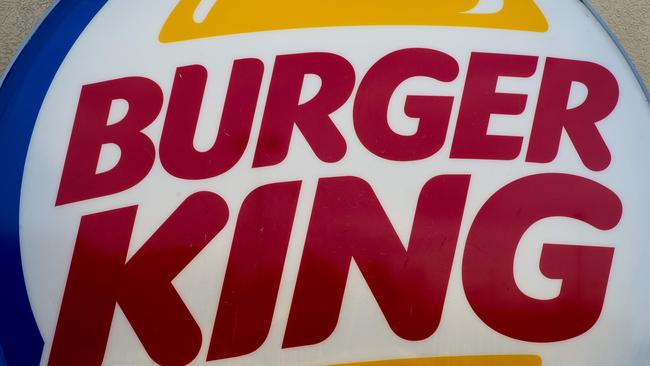
AFP
5.38am: Tesla hit for false ads
A German court ruled that specific terms used by Tesla for its electric cars’ assistance features are false advertising, including the vehicles’ “Autopilot” feature.
Judges at the higher state court in Munich found use of the term “Autopilot” as well offering as the option to buy a Model 3 vehicle with “full potential for autonomous driving” were “misleading business acts”.
“Use of the relevant terms creates an expectation … that does not correspond to the actual facts,” the court said in a statement.
Tesla’s “Autopilot” does not enable a trip without any human intervention at all, the judges found.
Neither would such a technology be legal under present German law, they added. The Centre for Combating Unfair Competition, an NGO which brought the case, said that Tesla’s autonomous driving technology at best reaches level two on a five-point scale in which five corresponds to completely driverless travel.
AFP
5.37am: Virgin Atlantic in £1.2bn rescue
Virus-hit airline Virgin Atlantic, part-owned by British tycoon Richard Branson, said it had secured its future thanks to private recapitalisation worth £1.2 billion ($US1.5 billion).
“Virgin Atlantic has reached a major milestone towards securing its future today, by announcing plans for a private-only solvent recapitalisation … following the severe impact of the COVID-19 pandemic on the global economy, the nation and the travel and aviation industry,” it said in a statement.
The news comes after Virgin Atlantic in May announced plans to axe more than 3000 jobs as the pandemic grounded a large number of passenger jets.
Branson meanwhile warned that Virgin Atlantic would collapse unless it received financial aid from the UK government to weather the crisis.
With the state unwilling to help save the 36-year-old airline, Virgin scrambled around for a privately-funded package — which it has secured with the help of Delta Air Lines, which owns 49 per cent of the carrier.
Restructuring, subject to creditor approval, “is based on a five year business plan, and with the support of shareholders Virgin Group and Delta, new private investors and existing creditors, it paves the way for the airline to rebuild its balance sheet and return to profitability from 2022”, Tuesday’s statement said.
The £1.2 billion package, comprising £200 million from Branson’s Virgin Group, will be delivered over the next 18 months.
It comes alongside the company’s plan to slash annual costs by £280 million per year and the refinancing of new aircraft deals.
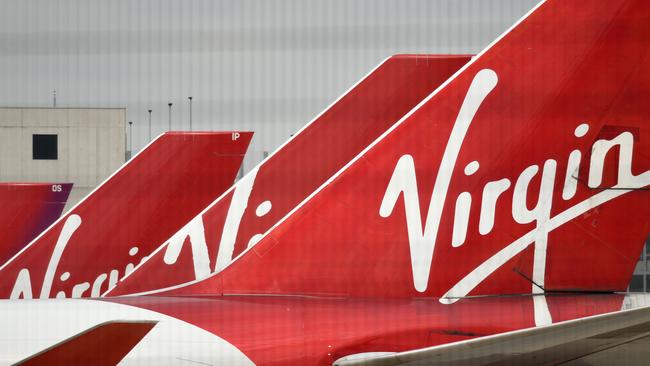
AFP
5.35am: South African Airways’ rescue deal
Creditors of South Africa’s flag carrier SAA approved Tuesday a restructuring plan for the cash-strapped airline, the government said.
The deal will require at least a billion dollars in funding. Loss-making South African Airways (SAA), one of the continent’s largest airlines, was placed under a state-approved rescue plan in December in an effort to save it from collapse.
SAA is to be replaced by a new and competitive airline after years of mismanagement and debt.
AFP
5.32am: US inflation spikes 0.6pc
Consumer inflation jumped in June as the economy began to reopen in most of the country, rising 0.6 per cent and driven by a rebound in gasoline prices, the Labor Department reported.
The spike came after three months of declines in the Consumer Price Index amid the shutdowns to contain the coronavirus pandemic.
Gasoline prices had fallen to record lows, but in June jumped 12.3 per cent, according to the report.
Excluding volatile food and energy goods, core CPI rose just 0.2 per cent.
AFP
5.30am: Britain bans China’s Huawei
Britain has bowed to US pressure and approved the phased removal of Chinese telecoms giant Huawei from its 5G network despite warnings of retaliation from Beijing.
The policy reversal hands a major victory to US President Donald Trump’s administration in its geopolitical and trade battle with China.
But it threatens to further damage Britain’s relations with the Asian power and carry a big cost for UK mobile providers that have relied on Huawei equipment for nearly 20 years.
Britain’s digital Minister Oliver Dowden announced the move in parliament, after Prime Minister Boris Johnson chaired meetings with his Cabinet and the National Security Council.
“From the end of this year, telecoms providers must not buy any 5G equipment from Huawei,” he told politicians.
The new guidelines also require all existing Huawei gear to be stripped out by the end of 2026.
AFP
5.25am: JPMorgan Chase profits slide
JPMorgan Chase set aside another $US8.9 billion for bad loans in the second quarter following the upheaval of the coronavirus as it reported a steep drop in profits.
Net income fell 51 per cent to $US4.7 billion, translating into earnings-per-share that topped analyst forecasts.
Revenues jumped 15 per cent to $US33.8 billion, its highest ever for a quarter. JPMorgan pointed to strength in its trading and investment banking divisions that it said offset weakness in consumer divisions.
The reserves taken in the second quarter were greater than in the first quarter, reflecting the choppy nature of the economic recovery following coronavirus closures earlier in the year that sharply slowed activity.
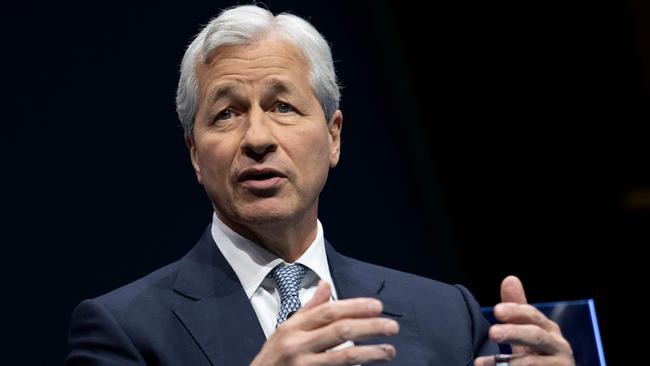
AFP
5.20am: UK economy slumps almost 20pc
Britain’s coronavirus-ravaged economy slumped almost one-fifth during the country’s lockdown and remained set for its sharpest decline in annual output for 300 years, official data showed.
The Office for National Statistics (ONS) said gross domestic product plunged 19.1 per cent in the three months to May “as government restrictions on movement dramatically reduced economic activity”.
The Office for Budget Responsibility, in charge of the government’s economic forecasts, said the “UK is on track to record the largest decline in annual GDP for 300 years”, estimating that the economy could shrink by as much as 14.3 per cent in 2020.
AFP


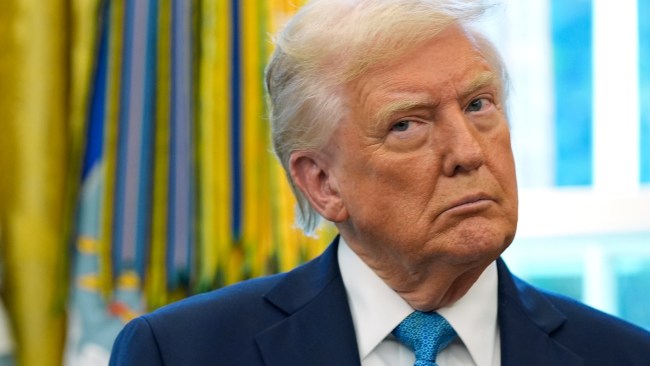
To join the conversation, please log in. Don't have an account? Register
Join the conversation, you are commenting as Logout